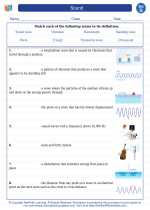Mechanical
Definition:
Mechanical refers to the study of motion, forces, and energy, and how they relate to the design and functioning of machines and mechanical systems.
Key Concepts:
- Motion: The study of the movement of objects and the forces that cause them to move.
- Forces: The interactions that cause a change in the motion of an object.
- Energy: The ability to do work, which can take various forms such as kinetic, potential, and mechanical energy.
- Machines and Mechanical Systems: The design and operation of devices that use mechanical principles to perform tasks or transmit forces.
Study Guide:
1. Motion
Understand the different types of motion, such as linear, circular, and oscillatory motion. Learn about the laws of motion formulated by Sir Isaac Newton and how they govern the behavior of objects in motion.
2. Forces
Explore the concept of forces, including types of forces such as gravity, friction, and tension. Study how forces are represented using vectors and how they can cause changes in an object's motion.
3. Energy
Learn about the different forms of energy and how they are related to mechanical systems. Understand the principles of work and power, and how energy can be transferred and transformed in mechanical devices.
4. Machines and Mechanical Systems
Study the design and functioning of simple machines such as levers, pulleys, and inclined planes. Explore the principles of mechanical advantage and how machines can make work easier by amplifying or redirecting forces.
5. Real-world Applications
Explore real-world examples of mechanical principles in action, such as the operation of engines, the dynamics of structures, and the design of everyday devices. Consider how mechanical concepts are used in fields like engineering, architecture, and transportation.
[Mechanical] Related Worksheets and Study Guides:
.◂Science Worksheets and Study Guides Seventh Grade. Sound
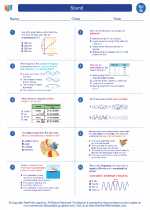
 Worksheet/Answer key
Worksheet/Answer key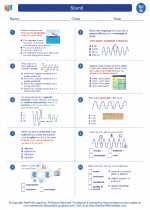
 Worksheet/Answer key
Worksheet/Answer key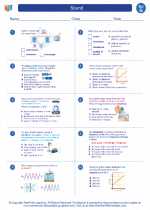
 Vocabulary/Answer key
Vocabulary/Answer key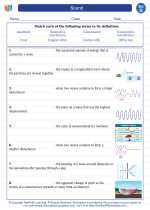
 Vocabulary/Answer key
Vocabulary/Answer key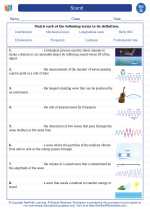
 Vocabulary/Answer key
Vocabulary/Answer key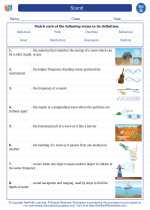
 Vocabulary/Answer key
Vocabulary/Answer key